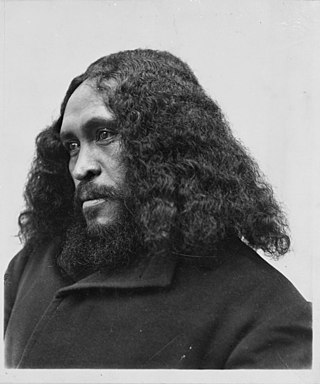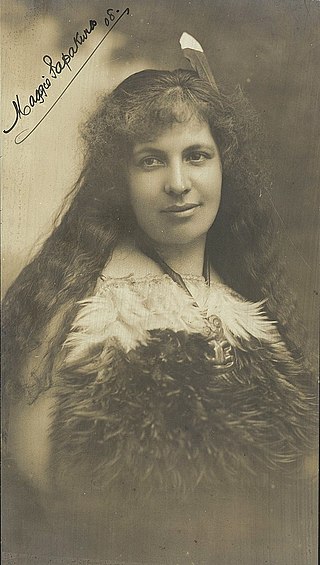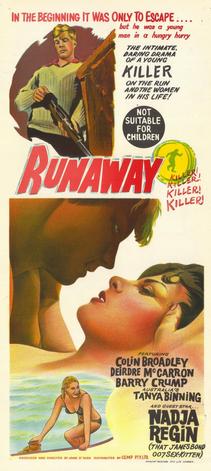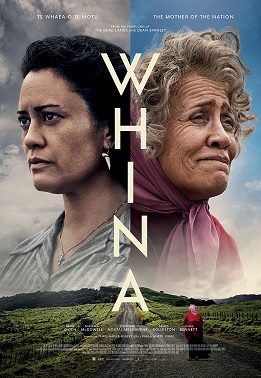Related Research Articles

New Zealand literature is literature, both oral and written, produced by the people of New Zealand. It often deals with New Zealand themes, people or places, is written predominantly in New Zealand English, and features Māori culture and the use of the Māori language. Before the arrival and settlement of Europeans in New Zealand in the 19th century, Māori culture had a strong oral tradition. Early European settlers wrote about their experiences travelling and exploring New Zealand. The concept of a "New Zealand literature", as distinct from English literature, did not originate until the 20th century, when authors began exploring themes of landscape, isolation, and the emerging New Zealand national identity. Māori writers became more prominent in the latter half of the 20th century, and Māori language and culture have become an increasingly important part of New Zealand literature.

Michael King was a New Zealand historian, author, and biographer. He wrote or edited over 30 books on New Zealand topics, including the best-selling Penguin History of New Zealand, which was the most popular New Zealand book of 2004.

Patricia Frances Grace is a New Zealand Māori writer of novels, short stories, and children's books. She began writing as a young adult, while working as a teacher. Her early short stories were published in magazines, leading to her becoming the first female Māori writer to publish a collection of short stories, Waiariki, in 1975. Her first novel, Mutuwhenua: The Moon Sleeps, followed in 1978.
John Dempsey O'Shea was a New Zealand independent filmmaker; he was a director, producer, writer and actor. He produced the only three feature films that were made in New Zealand between 1940 and 1970.

Māori politics is the politics of the Māori people, who were the original inhabitants of New Zealand and who are now the country's largest minority. Before the arrival of Pākehā (Europeans) in New Zealand, Māori society was based largely around tribal units, and chiefs provided political leadership. With the British settlers of the 19th century came a new British-style government. From the outset, Māori sought representation within this government, seeing it as a vital way to promote their people's rights and improve living standards. Modern Māori politics can be seen as a subset of New Zealand politics in general, but has a number of distinguishing features, including advocacy for indigenous rights and Māori sovereignty. Many Māori politicians are members of major, historically European-dominated political parties, but several Māori parties have been formed.

Jacqueline Cecilia Sturm was a New Zealand poet, short story writer and librarian. She was one of the first Māori women to complete an undergraduate university degree, at Victoria University College, followed by a Masters of Arts in Philosophy. She was also the first Māori writer to have her work published in an English anthology. Her short stories were published in several collections and student magazines in the 1950s and early 1960s, and in 1983 a women's publishing collective printed a collection of her short stories as The House of the Talking Cat. She continued to write short stories and poetry well into the early 2000s, and is regarded today as a pioneer of New Zealand literature.
Terence Bayler was a New Zealand film, television, and stage actor. His most memorable roles were in Monty Python's Life of Brian (1979) and Harry Potter and the Philosopher's Stone (2001).

Pukekawa is a town in the Lower Waikato River area of New Zealand's North Island, 66 km south of central Auckland. The area's fertile soils are used to grow a range of vegetables, including onions, potatoes and carrots. The town was in the Franklin District until the district's abolition in 2010.

Rua Kenana Hepetipa or Rua Kēnana Hepetipa was a Māori prophet, faith healer and land rights activist. He called himself Te Mihaia Hou, the New Messiah, and claimed to be Te Kooti Arikirangi's successor Hepetipa (Hephzibah) who would reclaim Tūhoe land that had been lost to Pākehā ownership. Rua's beliefs split the Ringatū Church, which Te Kooti had founded in around 1866/1868. In 1907 Rua formed a non-violent religious community at Maungapōhatu, the sacred mountain of Ngāi Tūhoe, in the Urewera. By 1900, Maungapōhatu was one of the few areas that had not been investigated by the Native Land Court. The community, also known as New Jerusalem, included a farming co-operative and a savings bank. Many Pākehā believed the community was subversive and saw Rua as a disruptive influence.

Nūhaka is a small settlement in the northern Hawke's Bay Region of New Zealand's eastern North Island, lying on State Highway 2 between Wairoa and Gisborne. The road to Mahia turns off the highway at Nūhaka.

Robert Sullivan is a Māori poet, academic and editor. His published poetry collections include Jazz Waiata (1990), Star Waka (1999) and Shout Ha! to the Sky (2010). His books are postmodern, explore social and racial issues, and explore aspects of Māori culture and history.
Stephen Sinclair is a New Zealand playwright, screenwriter and novelist. He is the co-author of stage comedy Ladies Night. In 2001, the French version won the Molière Award for stage comedy of the year. Other plays include The Bellbird and The Bach, both of which are prescribed texts for Drama Studies in New Zealand secondary schools.
Among the Cinders is a 1983 New Zealand drama film directed by Rolf Hädrich and starring Paul O'Shea, Amanda Jones, Derek Hardwick and Yvonne Lawley. After a hunting accident in which his friend is killed a boy (Nick) runs away from home and goes to live with his grandparents, where he matures into a man.

Feminism in New Zealand is a series of actions and a philosophy to advance rights for women in New Zealand. This can be seen to have taken place through parliament and legislation, and also by actions and role modelling by significant women and groups of people throughout New Zealand's history. The women's suffrage movement in New Zealand succeeded in 1893 when New Zealand became the first nation where all women were awarded the right to vote. New Zealand was also the first country in the world in which the five highest offices of power were held by women, which occurred between March 2005 and August 2006, with Queen Elizabeth II, Governor-General Silvia Cartwright, Prime Minister Helen Clark, Speaker of the New Zealand House of Representatives Margaret Wilson and Chief Justice Sian Elias.

Margaret Pattison Staples-Browne, more commonly known as Mākereti or Maggie Papakura, was a New Zealand guide, entertainer and ethnographer. Of Pākehā and Māori descent, she was of Te Arawa and Tūhourangi iwi.
To Love a Maori is a 1972 New Zealand film about an interracial romance. It was the seventh and last feature from Rudall Hayward.

Runaway, also called Runaway Killer, is a 1964 New Zealand made thriller film and a road movie. John O’Shea of Pacific Films produced, directed and co-wrote it. Shot in black and white and released on 35 mm and also 16 mm, it was cut to 80 minutes and renamed Runaway Killer for release in Britain, although this lost continuity between scenes. The film stars Colin Broadley in the lead, and several New Zealanders who became famous in other fields; Kiri Te Kanawa, Barry Crump and Ray Columbus.
Hori is an ethnic slur used against people of Māori descent. The term comes from a Māori-language approximation of George, an English name that was very popular during the early years of European colonisation of New Zealand. By means of synecdoche, the term came to be ascribed firstly to any unknown male Māori and then as a negative epithet to all male Māori.

Rānui Ngārimu is a New Zealand Māori weaver and textile artist. She has chaired Te Roopu Raranga Whatu o Aotearoa, the national Māori weavers' collective, and is formally acknowledged as a master weaver by appointment to the collective's Kāhui Whiritoi group in 2008.

Whina is a New Zealand biographical film about the life of Dame Whina Cooper. Written by James Lucas, James Napier Robertson and Paula Whetu Jones, and directed by Robertson and Jones, the film stars Rena Owen, Miriama McDowell and Tioreore Ngatai-Melbourne as Cooper in different stages of her life.
References
- ↑ Martin, Helen; Edwards, Sam (1997). "New Zealand film, 1912-1996". Trove . Auckland ; Melbourne ; Oxford :Oxford University Press . Retrieved 13 January 2023. ISBN 0-19-558336-1
- 1 2 New Zealand Film Commission page on Broken Barrier